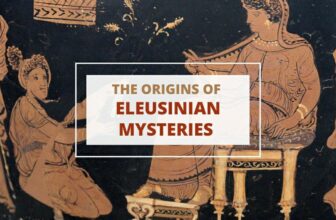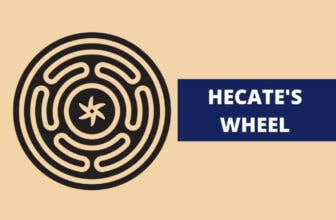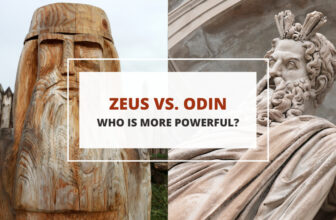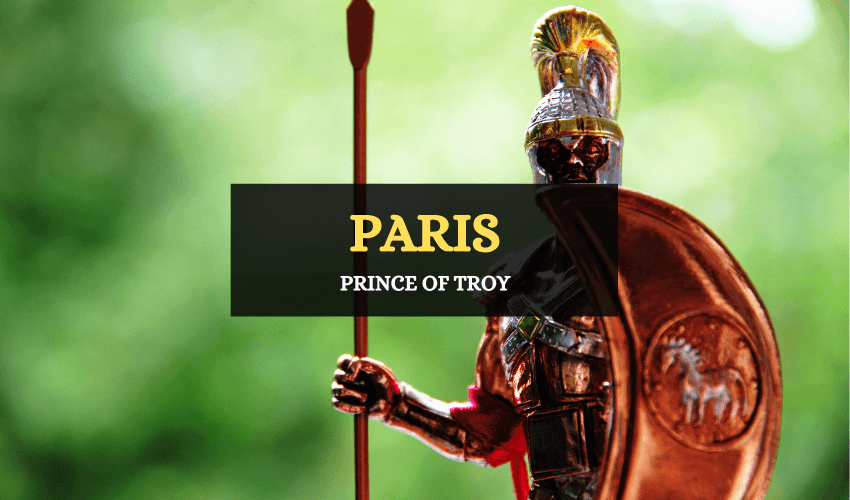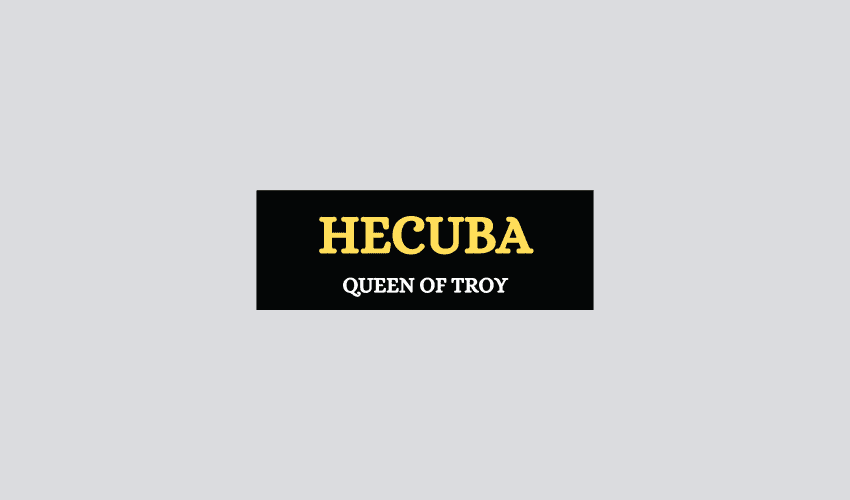
Table of Contents
In Greek mythology, Hecuba (or Hekabe), was the wife of Priam, the king of Troy. Her story has been chronicled in Homer’s Iliad, where she appears as a minor character in several instances. Hecuba was involved marginally in the events of the Trojan War, including several battles and encounters with the deities of Olympus.
In addition to being the Trojan queen, Hecuba also had the gift of prophecy and foresaw several of the future events which would involve the fall of her city. Her life was tragic and she faced untold misery, mostly in relation to her children.
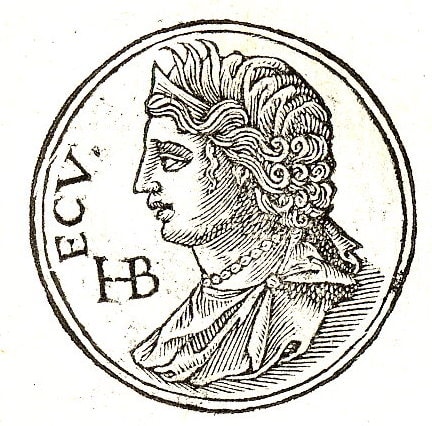
Hecuba’s Parentage
Hecuba’s exact origin is unknown and her parentage varies depending on the sources. Some say that she was the daughter of King Dymas, the ruler of Phrygia, and the Naiad, Euagora. Others say that her parents were King Cisseus of Thrace and that her mother was unknown, or that she was born to Sangarius, a river god, and Metope, the river nymph.
Her actual parentage and the combination of father and mother remains a mystery. These are just a few of many accounts which offer various explanations of her parentage.
Hecuba’s Children
Hecuba was King Priam’s second wife and together the couple had 19 children. Some of their children like Hector, Polydorus, Paris and Cassandra (who was also a prophetess like her mother) went on to became famous whereas some were minor characters who didn’t feature in their own myths. Most of Hecuba’s children were doomed to be killed either through treachery or in battle.
Prophecy About Paris
During the time Hecuba was pregnant with her son Paris, she had a strange dream that she gave birth to a big, fiery torch, covered with snakes. When she told the prophets of Troy about this dream, they informed her that it was a bad omen. They said that if her child Paris lived, he would be responsible for bringing about the downfall of Troy.
Hecuba was terrified and as soon as Paris was born, she ordered two of her servants to kill the infant, in an effort to save the city. However, the servants couldn’t find it in themselves to kill a child and they left him to die on a mountain. Luckily for Paris, a shepherd found him and raised him until he grew into a strong young man.
The Downfall of Troy
Several years later, Paris returned to the city of Troy and just as the prophets had predicted, he caused the city’s destruction. It all started when he fell in love with Helen, the wife of the Spartan King Menelaus and brought her to Troy along with some of her husband’s treasure.
All the Greek rulers had sworn that they would defend Menelaus and Helen when necessary. In order to rescue the queen, they declared war on the Trojans. After a decade-long battle, which saw the rise and fall of several great Greek heroes like Hector and Achilles, Troy was sacked and burned to the ground.
The Death of Hector
Hecuba played a part in the Trojan War by following the advice of her other son, Hector. She asked him to make an offering to the supreme god, Zeus and to drink from the cup himself. Instead of following her advise, Hector asked her to make a bargain with Athena, the goddess of wisdom and battle strategy.
Hecuba offered one of the gowns from Alexander’s treasure to the goddess Athena in exchange for her help. It was made by the women of Sidonia, and was beautifully embroidered and glittered like a star whenever a hint of light shone on it. However, Hecuba’s efforts were all in vain and Athena didn’t answer her.
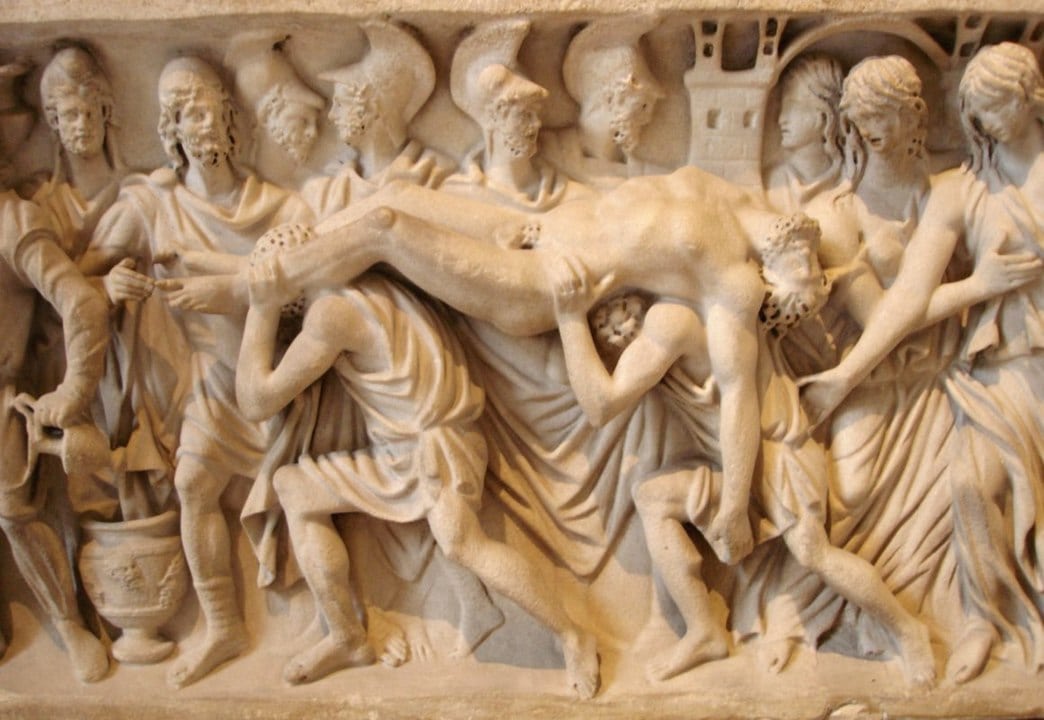
Finally, Hecuba pleaded with her son Hector not to fight the Greek hero Achilles, but Hector wouldn’t change his mind. Later that day, Hector, who fought valiantly, was killed by Achilles.
Achilles took Hector’s body with him to his camp and when Hecuba found out that her husband Priam had planned to retrieve their son’s body from Achilles, she was afraid for Priam’s safety. She didn’t want to lose her husband and a son both in the same day so she offered the libation cup to Priam and asked him to do the same thing she had asked of Hector: to make an offering to Zeus and drink from the cup so that he would be kept safe when heading out to the Achaean camp.
Unlike Hector, Priam did as she asked and he returned safely with Hector’s body. Hecuba later lamented the death of her son in a very moving speech, for Hector was her dearest child.
The Death of Troilus
Hecuba had another child with Apollo, the god of the sun. There was a prophecy made about this child, Troilus. According to the prophecy, if Troilus lived to the age of 20, the city of Troy wouldn’t fall, in spite of the earlier prophecy about Paris.
However, when the Greeks heard of this, they planned to kill Troilus. Achilles made sure that Troilus would not live, by ambushing the prince one day while he was out riding his horse near the front of the city. Troilus hid in Apollo’s temple, but he was caught and killed at the altar. His body was dragged around by his own horses and the omen was fulfilled. The city’s fate was sealed.
Hecuba and Odysseus
In addition to all the trials Hecuba had been through already, she was also taken prisoner by Odysseus, the legendary Greek king of Ithaca, and became his slave after the fall of Troy.
Before the start of the Trojan War, Odysseus had traveled through the city of Thrace where, King Polymestor ruled. The king had promised to protect Hecuba’s son Polydorus, at her request, but Hecuba later discovered that had broken his promise and betrayed her trust by killing Polydorus.
Having already lost several of her children by this time, Hecuba went mad when she saw Polydorus’ dead body and in a fit of sudden rage, she gouged out Polymestor’s eyes. She killed both his sons. Odysseus tried to stop her, but the gods, who had taken pity on her for all the suffering she had been through, transformed her into a dog. She escaped, and no one ever saw Hecuba again until she threw herself into the sea and was drowned.
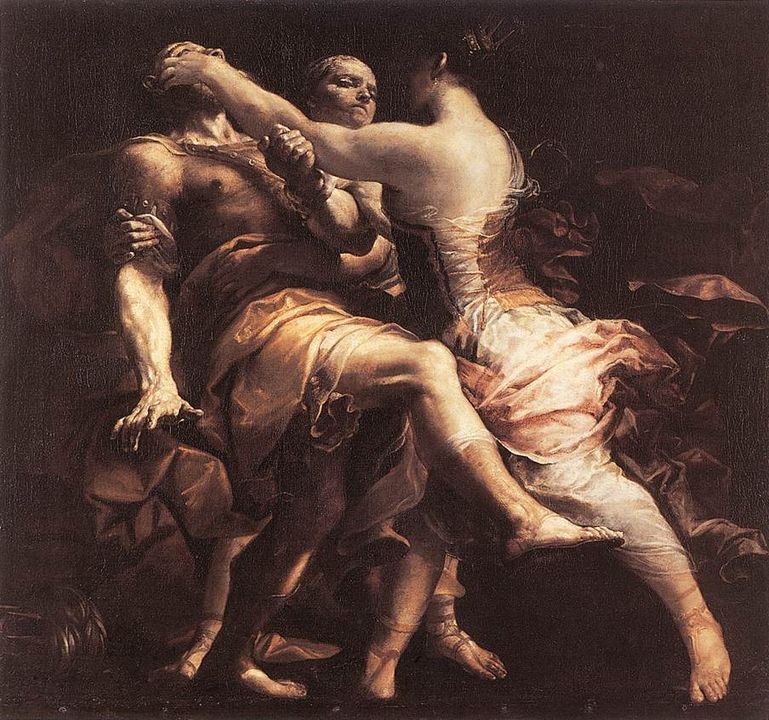
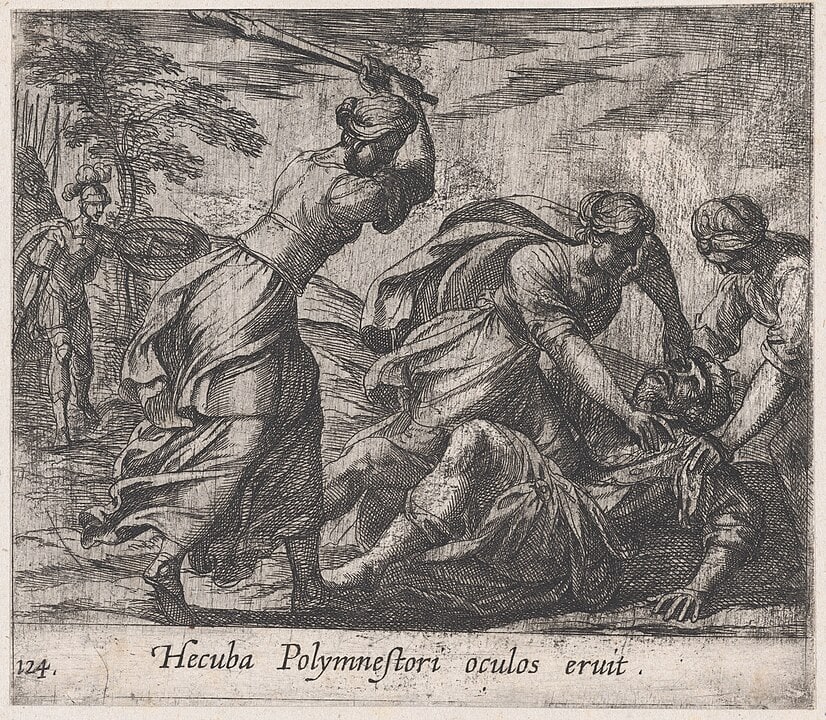
Hecuba’s tomb is said to be located on a rocky outcrop between Turkey and Greece, known as the Hellespont. It became an important landmark for sailors.
In Brief
Hecuba was a strong and admirable character in Greek mythology. Her story is filled with grief and her death was tragic. Throughout history her story has been told and retold and she remains one of the most respected characters of Greek mythology.




